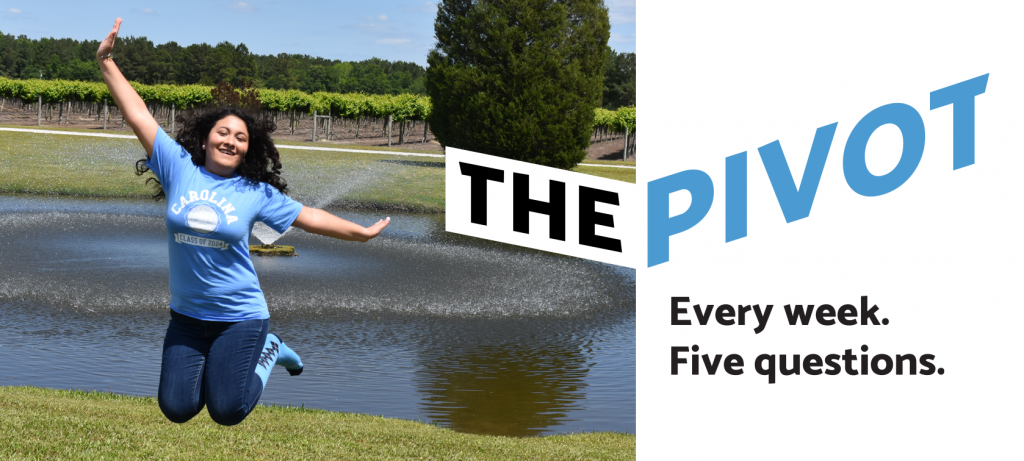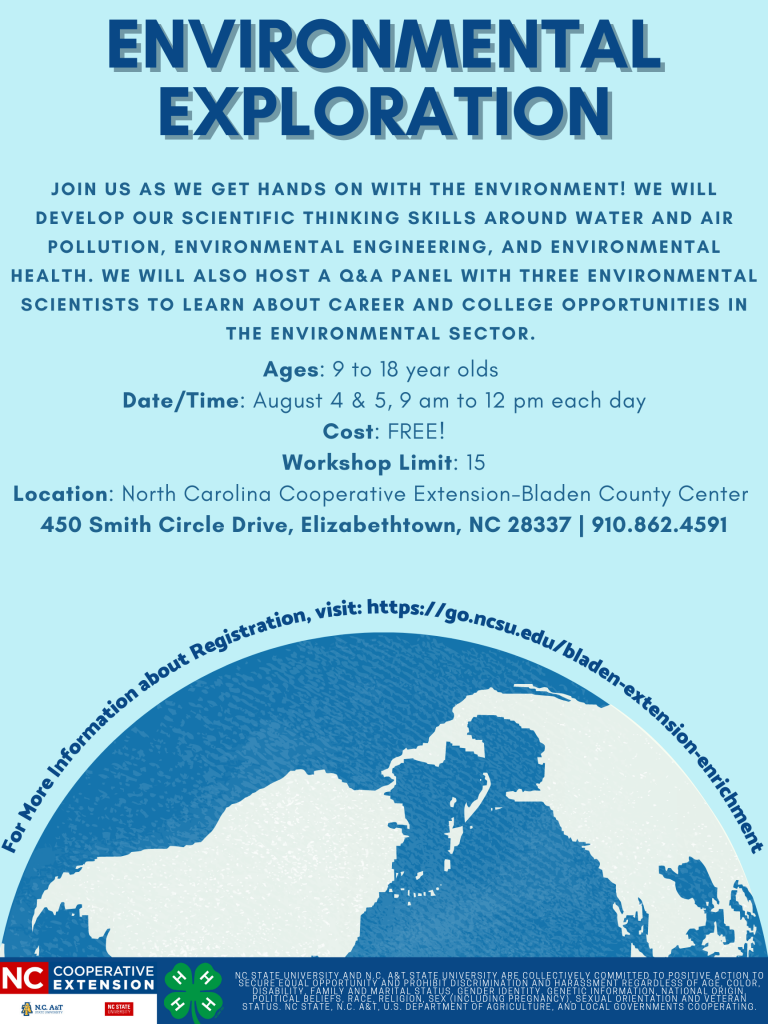 Ana Posas aspires to create healthier communities in rural North Carolina.
Ana Posas aspires to create healthier communities in rural North Carolina.

What’s your role in public health?
I am currently a sophomore at UNC-Chapel Hill. Next year, I plan on entering the environmental sciences and engineering major in the Gillings School’s Bachelor of Science in Public Health program. I recently took the ENVR 190 class with Dr. Amanda Northcross and participated in her Environmentally Engaged Communities and Undergraduate students Investigating for Public health Protection (ECUIPP) Lab. This summer, using the lessons and connections I gained through the ECUIPP Lab experience, I designed an environmental health workshop as part of an internship with 4-H in Bladen County, North Carolina. It was insightful and exciting to see all of my skills come together when teaching kids about the environment and how it relates to health.

Can you describe your focus area in one sentence?
I’m interested in combining environmental health and geography — specifically, applying geographic information system (GIS) skills to environmental health issues related to environmental (in)justice.

What brought you to public health?
I always teetered back and forth between medicine and a different major. When I came to Carolina, I was planning to do a pre-med major because medicine has always been a dream of mine, but it felt like there was nothing else you could do in that field except be a practitioner. When I started taking courses, I quickly realized that the biological side of it wasn’t of great interest to me.

Posas led an environmental exploration workshop in Bladen County over the summer.
During the time I was taking biology courses, I also took an environment and society course. That class was very holistic in terms of how it viewed the environment. It talked about the economic side of things, the medical side of things and things like climate change — actual environmental issues that you can see day-to-day. That captured my interest and gave me some perspective to explore how I could combine an interest in medicine with an interest in the environment. Eventually, I discovered the environmental sciences and engineering major. After taking the class with Dr. Northcross, I realized that was where I wanted to be.
In her class, I learned a lot about environmental health, environmental justice and, especially, air pollution — that’s her focus area. In the ECUIPP Lab, which was the second semester portion of the class, teams of students designed research projects exploring environmental justice related to particulate matter (PM) 2.5 and PM 1. We were studying the air quality in Robeson County, N.C. — specifically in relation to the Lumbee Tribe community there. We investigated how a proposed wood pellet plant in the area would potentially affect air pollution, and we estimated the impact of that on the cardiovascular health of local populations.
I’m also part of the Golden LEAF scholarship program — as part of the leadership component, I’m required to complete an internship. This summer, I connected with the N.C. Cooperative extension and the 4-H program in Bladen County. They run STEM programs through the 4-H, because K-12 students in that extremely rural area don’t have as many opportunities to do hands-on learning. My supervisor gave me a lot of freedom to design an environmental health workshop, which means I created the materials, the marketing resources, the agendas — everything. Dr. Northcross and two of her research collaborators, Drs. Anne Weaver and Kathleen Torso of the Environmental Protection Agency, helped me a great deal, and I was able to invite all three of them to Bladen County to join a speaker panel as part of the workshop.

How have you pivoted in response to the coronavirus pandemic?
Fall 2020 was my first semester, and I was in Chapel Hill for maybe two weeks before they sent us all back home. So, my first year was mostly virtual. I’m from Bladen County, and it was a strange experience to see what life at Carolina is like and then go immediately back home and take all my classes online. I’m very thankful that I got the opportunity to take a few hybrid classes in-person last semester, including Dr. Northcross’ lab.
I think most people who live in the central parts of our state don’t realize how hard COVID-19 hit rural counties. Bladen County was among those hit hardest at first. It was very scary, with case numbers going up and up every single day. It was also scary to see the differences in access to public health information and education around COVID-19. I was getting an education online through UNC, hearing all these facts about COVID-19 — it was all very clinical. But what I would hear around my community was not people talking about the public health aspects of COVID-19 — it was a lot more personal. “Oh, did you hear about so and so’s grandma getting sick?” That kind of thing. It was alarming and very real for so many people.
The experience made me realize that UNC, as a whole, is very privileged. Orange County has done well in managing the COVID-19 public health response, but it’s noticeably different in places like Bladen and Robeson Counties. They’re often overlooked in terms of sharing education and information, especially in times of crisis. It was a strange duality to see something through my computer that wasn’t reflected at home.

Who are you when you’re at home?
I love to be with my little brother, who is five and plays Minecraft. I like reading, especially fiction — young adult novels, science fiction and fantasy, that type of thing. I really enjoy caring for plants, and I like cooking! I’m from Honduras, and I’m also Ecuadorian; my mom makes Honduran food when we want a little slice of home. I help her cook traditional Honduran dishes, which are very, very tasty, but it’s also just nice to have that bonding time with her. We often make this one traditional Honduran flautas recipe that I really enjoy.
